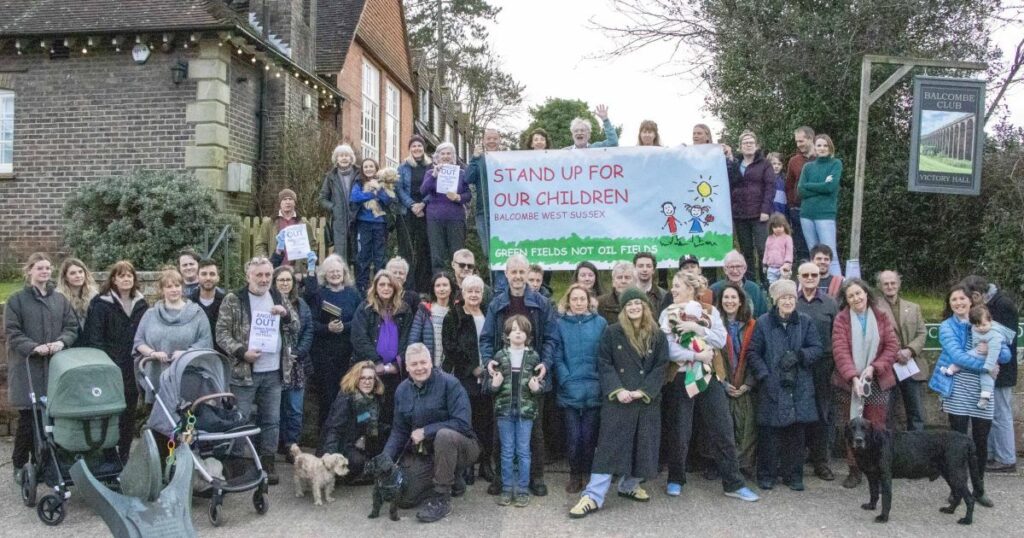Residents of Balcombe, near Haywards Heath, have been battling against the oil well in their village, making national headlines in 2013 when the well was drilled by Cuadrilla, attracting near-daily protests.
Frack Free Balcombe Residents’ Association (FFBRA) went to the Royal Courts of Justice to challenge planning permission for Angus Energy to test the commercial viability of the well.
Following the court’s ruling, work on the well test must begin by February 2026 and the test must be completed within 12 months.
Sue Taylor, who brought the case on behalf of FFBRA, said: “We are very disappointed and are looking at our options.”
The well test was unanimously refused planning permission by West Sussex County Council in 2021.
Councillors said the one-year test was not in the public interest and would have minimal benefit to the local economy.
But a planning inspector overturned the refusal in February 2023.
FFBRA went to the High Court in July 2023 but failed to reverse the decision.
It was, however, allowed to take the case to the appeal court.
The group argued that the well test, which would require burning gas in a flare, should not be allowed in the High Weald Area of Outstanding Natural Beauty (AONB), which covers Balcombe and the oil site.
FFBRA said local and national policy on hydrocarbons had been incorrectly interpreted.
It also argued that the risks to local water supplies had been overlooked, as had harm from toxic emissions to homes 350m from the site.
The appeal court rejected the argument that the inspector had unlawfully taken account of the potential benefits future commercial production without considering its harms.
It held that the inspector had correctly limited his assessment to the exploration and appraisal phase and had not speculated about future production.
The court also found that the inspector had not been wrong to apply policy M7a of the West Sussex Minerals Plan, which deals with hydrocarbon development not involving hydraulic fracturing.
READ MORE: National Trust bans coaches from one of county’s most popular tourist spots
The court held that policy M7b, which applies to hydraulic fracturing proposals, was not relevant and applying that policy would have been an error.
FFBRA argued that inspector misinterpreted the test that there must be exceptional circumstances to justify major developments in an AONB.
He should have considered alternative sites outside the AONB, the group argued.
The court held that the inspector dealt properly with alternatives and applied the relevant policies lawfully.
The court finally ruled that that the inspector had concluded, by a lawful exercise of planning judgement, that the development did not pose an unacceptable risk of water pollution.
This assessment was not flawed by any error of fact or by any other unlawfulness, the court held.
Source link
[Featured]
[Just In]




